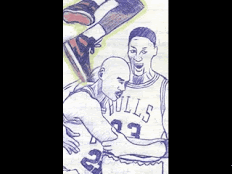
LADY J. brings a soulful flavour to Lugbara Music with her songs. In "Dramaza"), she sings in Lugbara and Swahili about living freely and enjoying the good things in your life namely Music, Dance, Drums, Adungu and Beer. So when you see her dancing, don't look at her in a bad light! Everything on earth ends here, then we meet our FATHER, HIS Name be praised!
[INTRO]
Oooh yeh, (We are the Queen fi di dancehall)
Ma adri pi, ma anvu pi, mi iri nga ma. (Pan de West Nile …)
E’yo nyaku driari ni asi ‘dia
Bule-a dale, ayiko tua yo
Ani, ani.
[CHORUS]
Aka ma ongo ngo, angoki
Aka ma ongo tu, atuki
Aka ma ari co, acoki
Aka ma adungu tu, atuki
(Aka ma ewa nvu, anvuki, anvuki, anvuki X2)
[VERSE ONE]
Nyaku mini neri iri ambo, Stani tua yo.
E’yoki vini drini-a tre ambamba
Azoki 'dia 'di 'ba-i odra.
Dra nini ode ku, dra nini amba ku.
Eri ama 'du tia.
A'di iji dra ni? Ilu anga mani!
'Ba kata atri atri, mata atri ra.
Saa erini ‘ba duzuri, ‘ba nini ku.
Vini mini isu’bori, ma adri, inya nya.
'Bule-a ‘dale ayiko tua yo, akaki mu Ata vu, Ru ni ovu inziza ru
Disco yo, ewa yo, (ani X4)
[CHORUS]
[VERSE TWO]
Dra ma azo ambamba, 'ba ‘di Lugbara la.
Eri mi ‘du o'duasi kile orobile
Ka vini mi 'du ‘bo, mi ida dri ku
Imvu imi awuzi be imi-i ku
Edri ma spare yo Lugbara la.
Katra adrici cika amajeje
A'dusikuni o'du ama ‘ba-i woro
Ani, aka ma ayiko zu, ineki ma onzi ku!
Aka ma ongo tu, ma tu ani.
Koboko, Yumbe azi imi ci!
Moyo, Adjumani, aku mi ku!
(Atu ki X6)
AudioWave!
[CHORUS]
[VERSE THREE]
Zamva akuari efi ra, munipe ma Club!
Nataka nyinyi yote kwa dancing floor.
Lewo ni siku yakukatika na muziki.
Akuna usingize, ama hakuna mapigano.
Ma ongo ngo emini ayiko fezu.
Ma fans, ma friends, ma muke too.
Izu ayiko mi asi-a ri, denga podi idranga kuru.
Inya mini nyari, dika iku mini kuri.
Drama saa yo, dra ma o’du yo.
Ika dra 'bule-a le, nyaku ni mi ka.
Ani aka ma ayiko zu, ineki ma onzi ku.
Wanyedemu zawo, muwashike kwa kikono!
Oki kose demu,
Oni pigiye telefoni (paka last X3)
[CHORUS and END]
"Amazu Ayiko" by LADY J. is a feel good song calling on all Lugbara to have fun instead of letting the sorrow in the world to fill their hearts.
[INTRO]
Maracha Yivu anzi emi ngoa, eh?
Ayivu, Terego. Zamva emi vu akuari ifi ra, eh!
O'du andruri 'bani ayiko zuzu ri.
Le ama zu ayiko!
[CHORUS]
Le amazu ayiko, ma adripi, ma amvupi, amazu ayiko
Le amazu ayiko, ma atipi, ma andripi, amazu ayiko
Le amazu ayiko, ma edapi, ma a'bipi, amazu ayiko
Le amazu ayiko, ma agoyi, ma awupi, amazu ayiko!
[VERSE ONE]
Chandi nyaku driari, 'ba ma 'ba asi-a ku, amazu ayiko
Egata tata ri, 'ba ma ega eri ku, amazu ayiko
Silimu tata 'di, 'ba ma asi ma mbamba, amazu ayiko
E'yo nyaku dri-a 'do ki, ewaru, amazu ayiko
Le mi ma ne mi agi ni mile onzi si ku, amazu ayiko
Le ama ngu ama sende ma e'yo si ku, amazu ayiko!
[CHORUS]
[VERSE TWO]
Arua la, amazu ayiko
Koboko la, amazu ayiko
Yumbe la, amazu ayiko
Moyo la, amazu ayiko
'Ba 'di Lugbara la(u), ama iciti ci, amazu ayiko
'Ba 'di Lugbara la(u), ama woro alu, amazu ayiko
'Ba 'di Ayivu la(u), ama nguru ku, amazu ayiko
'Ba 'di Aringa la(u), ama coru ku, amazu ayiko
'Ba 'di Terego la(u), ama awaru ku, amazu ayiko
'Ba 'di Maracha la(u), amazu ayiko, amazu ayiko!
[CHORUS]
[Repeat VERSE ONE]
[CHORUS]
[END]










